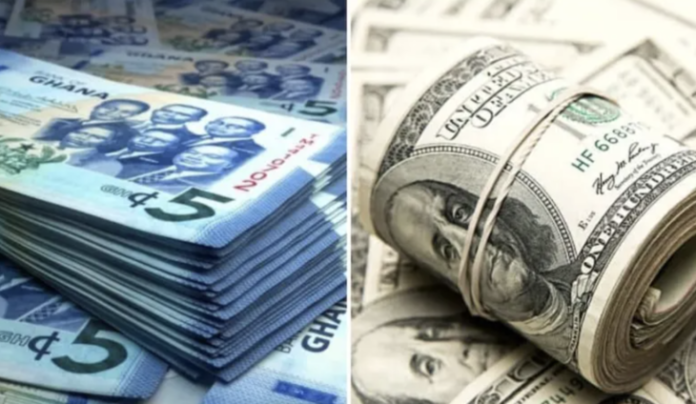The Minority in Parliament has raised fresh concerns about the government’s handling of the cedi, arguing that despite large-scale foreign exchange injections, the currency has not shown the stability expected.
At a press briefing on Friday, November 14, former Finance Minister Amin Adam said the scale of interventions should have translated into stronger gains. “
With the significant billions of dollars of interventions, we expected the rate to be at GH₵8 to a dollar.
“The market’s muted response reveals a sophisticated understanding that currency strength cannot be purchased; it must be earned through sound economic fundamentals,” he stated.
He argued that the government has leaned on short-lived market support instead of addressing deeper economic weaknesses.
Drawing comparisons, Dr. Adam referenced the IMF-guided programme under the previous NPP administration, saying foreign exchange interventions were tightly regulated. “
During the NPP administration, the IMF restricted the Bank of Ghana from intervening heavily in the forex market. The intervention budget was fixed at US$80 million per month, despite international reserves exceeding the IMF target. By the end of 2024, reserves stood at almost US$9 billion,” he explained.
He claimed the recent improvement in the currency’s value is tied to reserves left by the previous administration.
“The new Bank of Ghana management and the government began injecting massive sums of forex into the market from reserves they inherited. The performance of the cedi is therefore not by any magic or policy intervention; it is due to the hard work under the NPP administration.”
According to the Minority, the central bank has injected about US$8 billion into the market since the start of the year, helping move the exchange rate from around GH₵14 per dollar on January 6, 2025, to nearly GH₵11.
Dr Adam, however, said the outcome remains limited. “Despite these burdensome interventions, the gains remain disappointingly modest and fundamentally unsustainable.”
He also criticised what he described as “propaganda management” of the economy, questioning the benchmark used by government for its comparisons. “Merely repeating an untruth does not make it the truth,” he cautioned.
The Minority believes heavy interventions are draining reserves while critical issues, weak export earnings, sluggish productivity, and low forex inflows, remain unresolved. They warned that any temporary gains are likely to fade once intervention capacity falls.
“These resources have been squandered on temporary cosmetic improvements that will inevitably reverse once intervention capacity is exhausted.”
Dr Adam acknowledged that the Bank of Ghana has now shifted to an updated IMF-backed intervention system, saying it reflects the realities of the current situation.
He described the change as necessary. “The Bank must now intervene in a measured and transparent manner,” he said, calling it the responsible approach needed for long-term stability.
ALSO READ:



